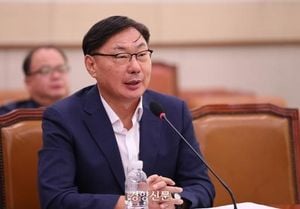The National Pavilion UAE has announced its forthcoming exhibition, titled Pressure Cooker, which will take place at the 19th International Architecture Exhibition - La Biennale di Venezia. Curated by Emirati architect Azza Aboualam, the exhibition aims to explore the dynamic relationship between architecture and food production within the UAE, proposing innovative solutions to create sustainable and self-sufficient food systems.
Set to run from May 10 to November 23, 2025, Pressure Cooker highlights the intersection where design, sustainability, and resource management converge, particularly within the challenges presented by arid environments. Building on extensive archival research and fieldwork, this exhibition critically examines the food-growing infrastructures across the UAE, illuminating the often-overlooked resource-rich landscapes inherent to the region.
Aboualam’s exhibition seeks to reimagine both traditional and contemporary food production methods, ranging from vernacular farming practices to advanced greenhouse technologies. “Pressure Cooker highlights the role of architecture in food security and climate resilience,” stated His Excellency Sheikh Salem bin Khalid Al Qassimi, UAE Minister of Culture, pointing to the urgency of addressing global challenges surrounding food security and climate change.
By investigating how architecture can be leveraged to improve food resilience, the exhibition presents ambitious visions for integrating sustainable food systems both within urban and rural settings. Azza Aboualam's research presented during this event, complemented by a published work, inspects the proactive responses architecture can offer to the urgent issues of food scarcity, adapting current frameworks and innovatively creating new methodologies for food cultivation.
Through its 2025 participation at La Biennale, the UAE continues to reflect its commitment to fostering architectural innovation and addressing key international challenges. Notably, this year will also see the UAE Pavilion hosting another reputed exhibition aimed at framing the nation’s narratives within the architectural dialogue, following its previous recognition with the Golden Lion award for best national participation at the 17th Biennale, where the exhibition Wetland, curated by Wael Al Awar and Kenichi Teramoto, gained acclaim.
Shifting to another facet of national development, the Central Bank of the United Arab Emirates (CBUAE) has recently reported significant progress within its Financial Infrastructure Transformation Programme (FIT). Launched nearly two years ago, the FIT Programme is reportedly ‘85 percent’ complete, as the central bank steers its strategy toward accelerating the digital transformation of financial services.
This comprehensive action plan is set to drive financial inclusion, promote payment innovations, and contribute to achieving the broader vision of attaining a cashless society. The FIT Programme, composed of nine key initiatives, aims for full integration by 2026, showcasing several milestones achieved over the past year. Key developments included the publication of open finance regulations and the launch of the domestic card scheme ‘Jaywan’, named after the Arabic term meaning ‘precious pearl’.
CBUAE indicated the implementation of new frameworks and infrastructure pivotal for the nation’s financial ecosystem, noting : “The UAE is the first country globally to implement a consolidated trust-framework and centralised API hub,” which will facilitate secure access to the banking and insurance markets. This regulatory space, which will slot comprehensively with existing financial institutions under CBUAE's supervision, is seen as revolutionary both domestically and internationally.
At the heart of this advancement is the aspiration to see the fintech sector grow significantly. Abdulla Mashaal, the head of open banking at Emirates NBD, indicated optimism about the future of finance stating, “At the national level, the hope is this injection of time, effort and money... will allow the fintech sector to grow 10 to 15 percent year on year.”
The FIT Programme dovetails with the ‘We the UAE 2031’ vision and links to the UAE Digital Economy Strategy, emphasizing the leadership blueprint for transforming various sectors of the economy. The aim is to double the contributions of the digital economy to the non-oil GDP from 11.7% to over 20% within the next decade.
Significantly, the digital dirham is also making strides, with recent engagements highlighting its use for cross-border transactions via innovation like the mBridge platform, enabling connections with China and others globally. The groundbreaking first cross-border payment amounted to AED 50 million (around $13.6 million) last January, indicating the UAE’s proactive approach to both digital and financial innovations.
With the synergy between architecture, sustainability, and fintech strategies, the UAE is poised to lead both regional and global discussions on development and innovation. This dual focus on enhancing cultural infrastructure through projects like Pressure Cooker and revolutionizing financial services through the FIT Programme exemplifies the country's commitment to sustainable growth and resilience.



